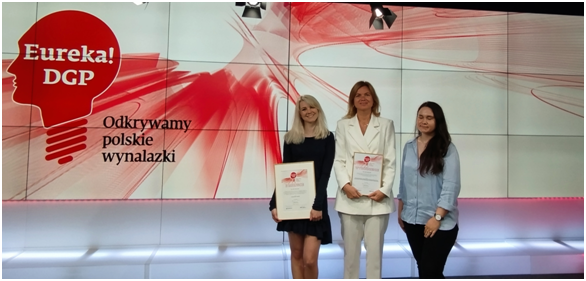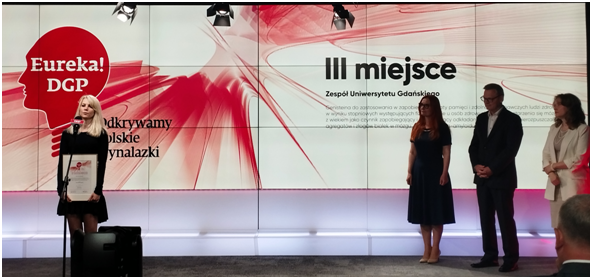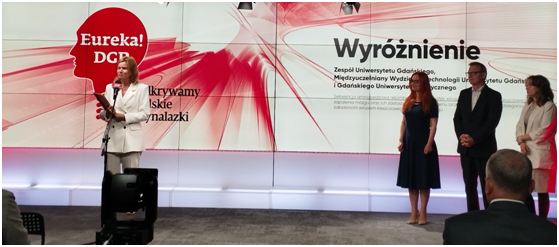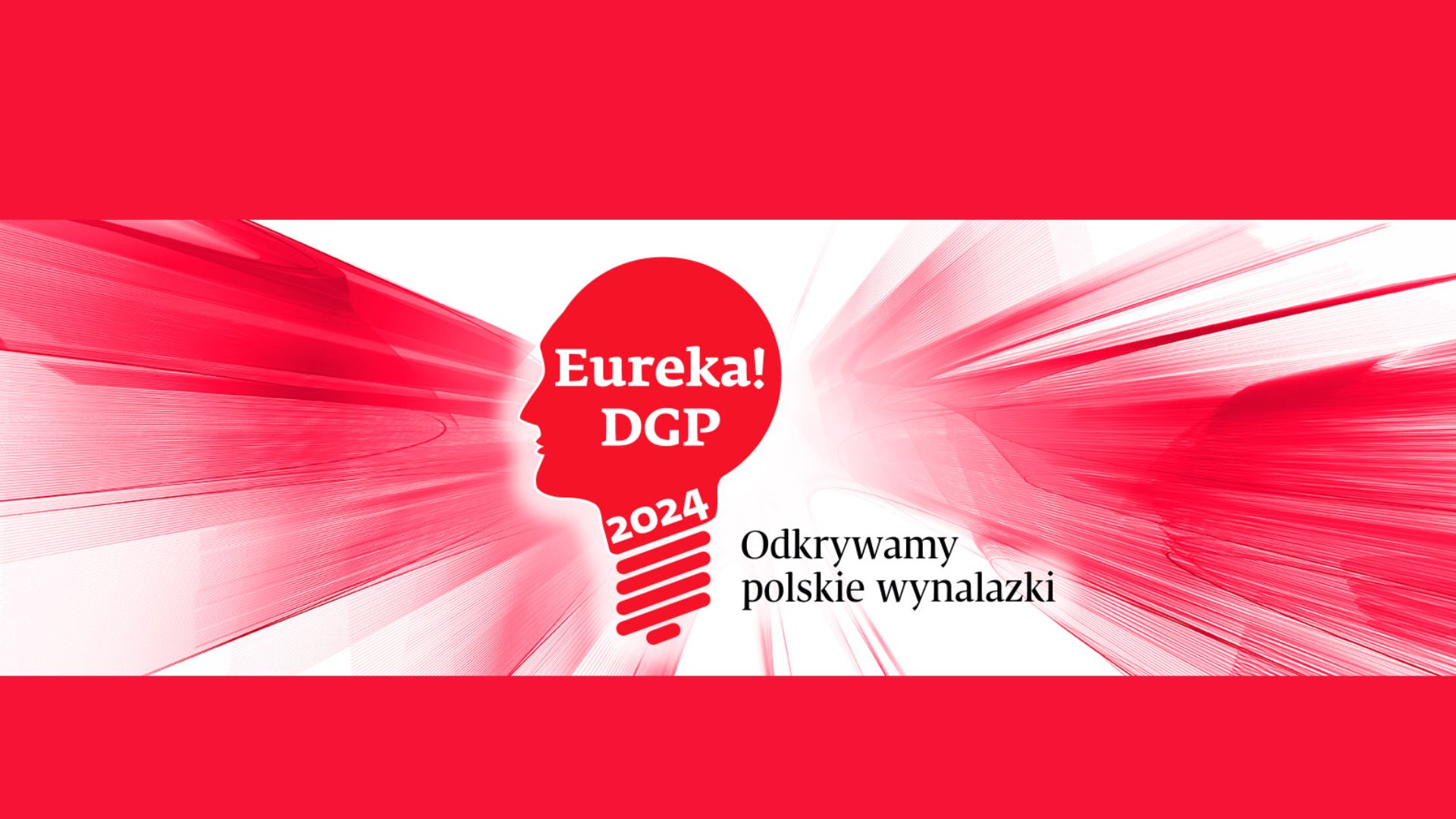Research teams led by Professor Grzegorz Węgrzyn and Professor Ewelina Król were among the finalists of the ‘Eureka! DGP – We discover Polish inventions’. They are the next scientists from the University of Gdansk to be recognised in this competition. ‘Genistein for the prevention of memory loss and cognitive abilities in healthy people’ and ‘ Amino acid sequence of recombinant virus-like particles of tick-borne encephalitis virus and their use as a vaccine antigen’ were among the awarded inventions at a gala ceremony on 25 June this year.

Selected inventions with high commercialisation potential, developed at the UG, for the Eureka! DGP is annually submitted by the Technology Transfer Centre (ug.edu.pl), a unit responsible for the management of the university’s intellectual property and commercialisation of inventions created at UG. In the plebiscite of Dziennik Gazeta Prawna, awards are given to Polish inventions that have the potential to be used in the economy and in production. The editorial board of Dziennik Gazeta Prawna examines applications from the formal point of view and admits them to the competition, while the inventions admitted to the competition are subject to substantive evaluation by a verification committee. The competition is held under the patronage of the Minister of Science and Higher Education, the Patent Office of the Republic of Poland, the National Research and Development Centre and the Polish Academy of Sciences, while the patron of the competition is Polpharma S.A.

‘Genistein for the prevention of memory loss and cognitive abilities in healthy people’. – 3rd place
The innovative research was conducted by a team of female scientists: Karolina Pierzynowska, PhD, Zuzanna Cyske, MA, Lidia Gaffke, PhD, Magdalena Podlacha, PhD, Dorota Myślińska, PhD, Irena Majkutewicz, PhD, under the direction of Professor Grzegorz Węgrzyn.
Genistein has been proposed for use in the prevention of memory and cognitive loss in healthy people, processes that arise as a result of gradual, physiologically occurring changes in the brain in healthy people that accumulate with age. The compound could potentially be used as an agent to prevent and reduce the deposition of harmful insoluble protein aggregates and deposits in the brain, especially beta-amyloid.
Cognitive impairment occurring with age represents an intermediate stage between normal cognitive functioning and dementia. Cognitive deterioration is becoming an increasing problem in an ageing population.
– Genistein is a naturally derived compound found in many plants, including soya. It is safe to use – as demonstrated not only by animal studies, but also by clinical trials conducted in the USA and the UK, says Professor Węgrzyn.
Analysing the results obtained in studies on mice, the researchers found that the administration of genistein significantly improved memory and cognitive processes in animals of both sexes, and also had a positive effect on brain function. Furthermore, neurological effects of ageing, such as deterioration of memory and cognitive parameters, could be prevented. Potential prevention of neurodegenerative diseases such as Alzheimer’s disease is also possible. The implementation of the invention may help to reduce or inhibit the processes of cognitive impairment
cognitive functions, especially in the elderly, as well as in the prevention of neurodegenerative diseases,’ adds the professor.
The commercialisation of genistein as a means of preventing cognitive impairment that occurs with age could be a breakthrough in the prevention of senile dementia, as well as some neurodegenerative diseases. As such, the commercialisation of genistein should be attractive to the pharmaceutical industry in particular. It is estimated that around 5-6 million people worldwide currently suffer from these diseases, a number that will at least triple by 2050, to which should be added the much larger number of people not yet diagnosed but showing symptoms of senile dementia. If we assume that the prevention of cognitive impairment will become widespread, there could be hundreds of millions of people worldwide potentially interested in buying a product that effectively protects against such ailments. In Poland, this could be hundreds of thousands of people or even several million, depending on the public perception of the possibility of using age-related cognitive impairment prevention. This therefore opens up enormous commercial opportunities if the described preparation is implemented.
‘Amino acid sequence of recombinant tick-borne encephalitis virus-like particles and their use as a vaccine antigen’ – an award
The team consisting of Dr Ewelina Król, Prof. UG, Marta Zimna, M.Sc., Dr Gabriela Brzuska, Prof. Bogusław Szewczyk, Ph.D., and Sara Boch-Kminikowska, M.Sc., developed a potential recombinant vaccine against tick-borne enephalitis virus (TBEV).
The object of the invention are virus-like particles (VLPs) of the TBEV virus, i.e. structures that mimic the virus and are capable of eliciting an immune response against it, but which cannot multiply in the human or animal body and are incapable of causing infection. As a result, the developed VLPs particles have a high potential for use as a vaccine. The VLPs are produced in an unconventional protozoan-based system, which allows for efficient production and purification of the particles and thus a low price for the potential vaccine. All this makes the potential vaccine we have developed competitive with the expensive inactivated virus-based vaccines currently available on the market. The full efficacy of the VLPs-based vaccine has been confirmed in animal model studies. The implementation of the developed recombinant vaccine, at a much lower cost, could make a significant contribution to the availability of a vaccine against TBEV. Production costs would be significantly reduced compared to currently available vaccines due to the use of an expression system based on low-cost reagents, the use of simple purification methods and basing the formulation on a recombinant antigen, which does not require as high safeguards in production as a virus-based inactivated vaccine. Currently, vaccination is not mandatory, but only recommended for residents and tourists travelling in endemic areas. A cheap but effective and safe vaccine to protect against TBEV infection could be used universally. The low cost of the vaccine could also allow it to be used as a veterinary vaccine, which is currently not available. Consumption of dairy products from infected animals is one route of transmission of the virus to humans. Therefore, the introduction of vaccination for livestock would both reduce the reservoir of the virus in the environment and reduce the possibility of human infection.
In last year’s competition, third place was awarded to the invention of a quantum random number generator, on which Professor Marcin Pawłowski, head of the Quantum Cybernetics Team at the International Centre for Quantum Theory of Technology, worked, among others. On the other hand, in 2022, the first place was won by a team of scientists from the University of Gdańsk (dr hab. inż. Wojciech Śledź, dr Agata Motyka-Pomagruk, prof. dr hab. Ewa Łojkowska) and the Wrocław University of Technology for the invention ‘Method of deactivating antibiotics in aqueous solutions’.
Link to the article Dziennik Gazeta Prawna: Soya wins against alzheimer’s – Dziennik.pl
Link to the article Dziennik Gazeta Prawna: Recombinant alternative – Dziennik
All inventions submitted to the competition







